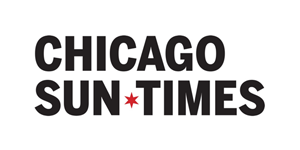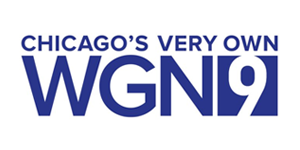
Learn More
North Chicago Slip and Fall Attorneys
Consumer spending brings billions of dollars into the United States economy annually. As technology advances, people continue to purchase goods and services with the touch of their cell phones, tablets, computers, and televisions. The ability to buy items is quicker than in previous decades. However, the demand is so high that the supply often cannot keep up with the purchase orders.
In the United States, more than 250 million people use online shopping to buy groceries, fast food, and clothing. They also can watch newly released movies on home entertainment systems. The current trend is consumer convenience. People even pay their bills via the internet. With the options of receiving the merchandise by home delivery or curbside pickup, removing the need to enter the store, it seems physical buildings are obsolete.
However, the United States Census Bureau estimates that e-commerce only makes up an average of 14 percent of overall retail sales. Therefore, consumers still go to physical businesses to shop, pay bills and complete other errands. Millions of brick-and-mortar establishments exist in the United States. They provide convenience, such as having the item upon purchase.
In North Chicago, with a population of more than 30,000, the businesses and local events bring a mixture of citizens and visitors to their establishments. Businesses have different influxes of customers at specific hours, days, and times of the year. Sometimes they can have a lower or higher number of patrons than average.
The property owners in North Chicago must take the necessary steps to ensure the buildings and grounds are safe for their guests. Without regular maintenance and inspection of the premises, customers can slip and fall. The injured person may end up with mild to severe injuries in the accident.
If you or a loved one suffered injuries from a slip and fall accident in North Chicago, contact an experienced and knowledgeable attorney at Briskman Briskman & Greenberg today. Call 1-877-595-4878 to schedule a free consultation to discuss your case.
What is a slip and fall?
The National Safety Council reports that in 2020 approximately 55.4 million injuries occurred. Of the injuries, falls were the leading cause of nonfatal accidental injuries. The Centers for Disease Control estimates that for 2020, more than 6.8 million nonfatal accidental falls resulted in emergency department visits.,
Falls can occur in different ways and locations. Some falls occur while in the workplace or performing work-related duties. People can have fall accidents in their homes. Slip and fall injuries can happen when guests, customers and visitors are at someone else’s premises.
A slip and fall is a type of personal injury that occurs when a person slips on an object or condition on the ground that causes him to fall. The accident happens on another’s property, usually due to the landowner’s failure to remove or contain dangerous conditions on the land.
Causes of slip and fall accidents
Slip and fall accidents occur on properties on the inside and outside of the buildings. Several factors can contribute the falls, such as:
- Slippery, cracked, broken and uneven grounds and floors
- Poor lighting
- Debris
- Clutter
- Potholes
- Broken or loose stairways, railings and steps
- Falling objects
- Damaged seating
Slip and fall injuries
Victims of slip and fall accidents typically do not expect them to occur. Even when they see an object or condition that causes the fall, they cannot avoid it from happening. When individuals fall, the instinct is to brace themselves for the impact or try to prevent it. The common injuries of a slip a fall include:
- Bruises
- Cuts
- Scrapes
- Fractures
- Broken bones
- Pulled muscles
- Dislocations
- Spine injuries
- Traumatic brain injuries
Premises liability
Under the Illinois Premises Liability Act, the owner or occupier of a premises has a duty of care to allow to enter their property. The duty must be of reasonable care based on the conditions of the building or grounds or the acts carried out on the property. If the owner or occupier fails to meet the duty of care, they are liable for the injuries and damages the guest suffers.
State law does not distinguish a different duty owed to invitees and licensees on the premises. An invitee is a person who arrives at a property at the invitation of the owner. The invitee is on the premises for the owner’s financial benefit or the property is open to the public. Examples of an invitee are customers in a grocery store, visitors in a hospital, and people at public parks. The person or entity that owns the property does not have to invite someone onto the grounds expressly. Places opened to the public give an implied invitation for people to enter.
Unlike invitees, licensees enter another’s premises for their own benefit. The landowner does not benefit commercially or professionally from a licensee coming onto the property. An individual invited as a social guest by the property owner is an example of a licensee.
North Chicago slip and fall personal injury lawsuit
An invitee or licensee injured in a slip and fall while on an owner’s or occupier’s premises can file a personal injury lawsuit for the injuries and damages suffered. The victim can have emotional and psychological harm from the accident in addition to her physical injuries. The injured party may also accrue medical bills and other unexpected financial obligations arising from the fall.
The purpose of the personal injury case is for the victim to seek compensation for the harm suffered because the owner failed to meet their duty of care for the premises. As a result of the slip and fall, the injured party seeks to recover damages, including medical bills, pain and suffering, loss of employment and humiliation.
The slip and fall lawsuit begins when the victim files a complaint in the appropriate North Chicago court. The party that files the lawsuit is the plaintiff., The complaint contains the plaintiff’s statement regarding the facts of the accident and the compensation she seeks from the court. A summons accompanies the complaint and notifies the defendant of a lawsuit filed against him and that they must appear in court. Once the defendant receives notice of the lawsuit, he has 30 days to answer the complaint.
The injured plaintiff must file the complaint within the statute of limitations of Illinois law. A person must file a slip and fall personal injury lawsuit within two years from the date of the accident. If the harmed person fails to meet the deadline to file the legal action, they lose the opportunity to file the case.
Proving fault in a slip and fall case
In a slip and fall lawsuit, the plaintiff has the burden of proving that the owner or occupier of the premises is at-fault for the accident. The burden of proof means that the plaintiff must show that her statement of the facts is more likely true than untrue. The victim must establish that the defendant meets every element of premises liability; and, therefore, is responsible for the plaintiff’s damages.
To prove that the owner or occupier of land, building, or establishment must compensate a person who slips and falls on their premises, the plaintiff must show the property owner:
- Knows or would discover by using reasonable care or should know the condition of the premises creates an unreasonable risk of harm to invitees or licensees; and
- Should expect that guests entering the property will not find or realize the danger (or they will not protect themselves from the risk); and
- Breach of the duty to exercise reasonable care to protect visitors from danger on the grounds
Open and obvious doctrine
Generally, property owners are responsible for injuries that occur on the premises if they fail to take reasonable care to prevent and avoid dangerous conditions. However, the open and obvious doctrine is the exception to the reasonable care duty.
Under the doctrine, if an invitee or licensee engages in an activity or condition on another’s property that is openly and obviously dangerous, the landowner does not have liability for the resulting injuries and damages. However, the property owner can still have fault if he should anticipate a possible harm regardless of the knowledge and obviousness of the risk.
North Chicago slip and fall wrongful death lawsuit
A slip-and-fall accident can result in the death of the victim. In 2020, over 42,000 death occurred from a fall. When a person dies in a slip-and-fall accident due to the property owner’s negligence, the surviving family member can file a wrongful death lawsuit against the property owner.
The personal representative of the victim’s estate files the case on behalf of the surviving spouse and next of kin. The compensation is for damages that arise from the wrongful death, including grief, sorrow, and mental suffering.
Hire an Attorney
Individuals hurt in slip and fall accidents need time and focus to recuperate from their injuries. They also have to deal with the resulting emotional and financial damages. The time, energy, and possible travel required are complex and time-consuming. They require obtaining and analyzing documents. Sometimes deadlines have short time frames and arise with very little notice.
It is best to have an attorney handle the case and protect your rights under the law. Contact a knowledgeable and experienced North Chicago slip and fall attorney at Briskman Briskman & Greenberg. Call 1-877-595-4878 today for a free consultation of your case.
Slip and Fall Lawyers Available Throughout Illinois
- Chicago Slip And Fall Attorneys
- Lake County Slip and Fall Attorneys
- Mundelein Slip and Fall Lawyers
- North Chicago Slip and Fall Attorneys
- Oak Lawn Slip and Fall Lawyers
- Orland Park Slip and Fall Lawyers
- Waukegan Slip and Fall Attorneys
- Wheeling Slip and Fall Accident Attorney
Slip and Fall Resources
- What Happens in a Slip and Fall Lawsuit in Illinois?
- Slip and Fall at a Subway in Chicago? Our Lawyers Can Help
- Slip and Fall at a Target in Chicago? Our Lawyers Can Help
- Slip and Fall at Aldi Supermarkets in Chicago? Our Lawyers Can Help
- Slip and Fall at Costco in Chicago? Our Lawyers Can Help
- Slip and Fall at Jewel-Osco in Chicago? Our Lawyers Can Help
- Slip and Fall at Jimmy John’s in Chicago? Our Lawyers Can Help
- Slip and Fall at Mariano’s Fresh Market in Chicago? Our Lawyers Can Help
- Slip and Fall at McDonald’s in Chicago? Our Lawyers Can Help
- Slip and Fall at Steak ‘n Shake in Chicago? Our Lawyers Can Help
- Slip and Fall at Tony’s Finer Foods in Chicago? Our Lawyers Can Help
- Slip and Fall at Trader Joe’s in Chicago? Our Lawyers Can Help
- Slip and Fall at Wal-Mart in Chicago? Our Lawyers Can Help
- Slip and Fall at Whole Foods in Chicago? Our Lawyers Can Help




SEEN ON:







